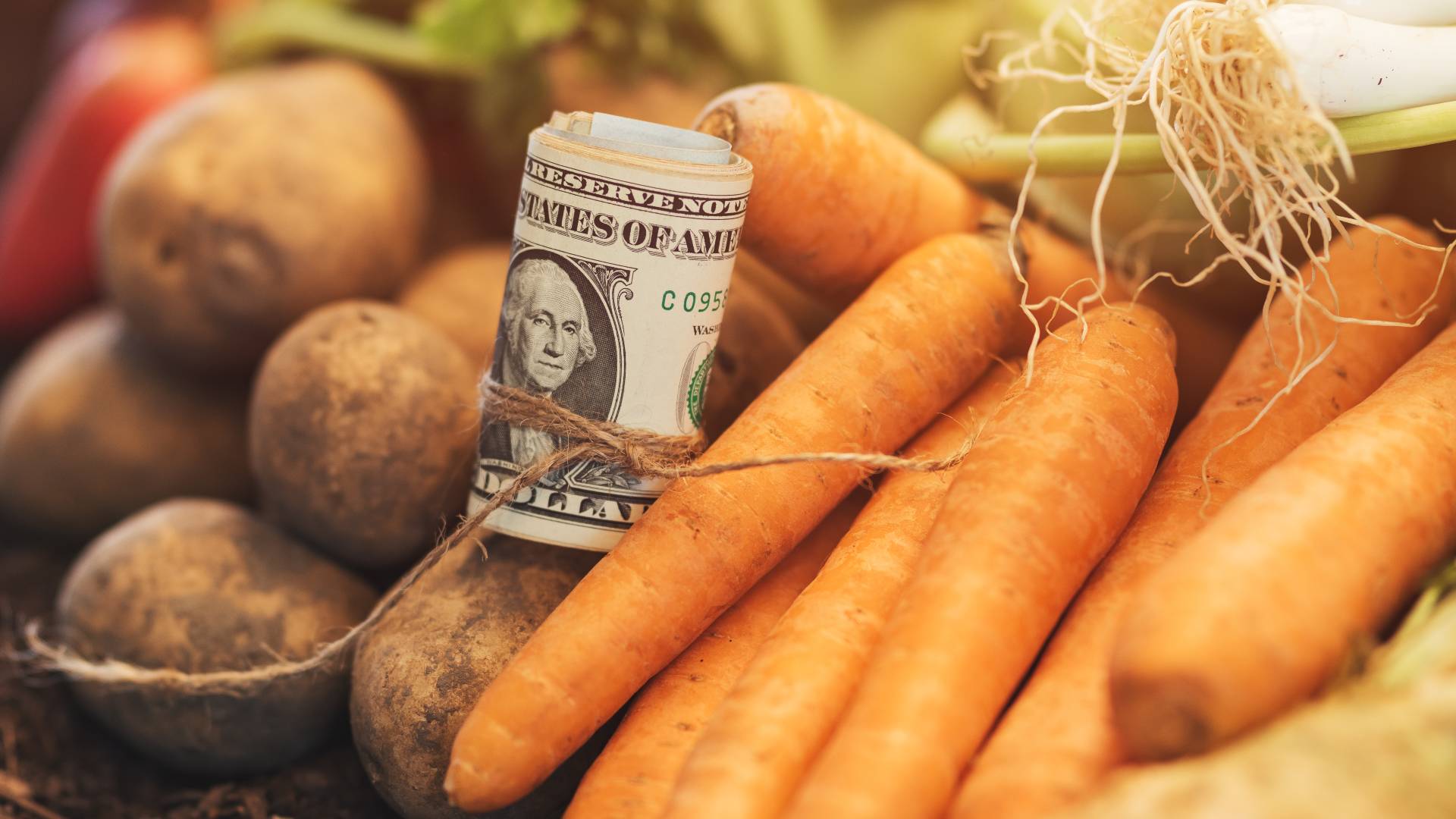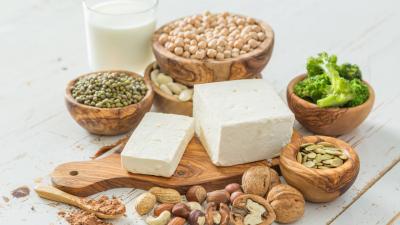Majority of U.S. Adults Misinformed About Cost of Eating a Plant-Based Diet
In New Survey, Baby Boomers Were Most Likely to Inaccurately Say a Vegan Diet Is More Expensive

WASHINGTON, D.C. — More than 60% of U.S. adults incorrectly think that eating a plant-based diet is more expensive than eating a diet with meat and dairy, according to a new Physicians Committee for Responsible Medicine/Morning Consult survey. Baby Boomers were the most likely to believe this, with 67% saying plant-based eating is somewhat or much more expensive than the Standard American Diet.
The survey also shows 77% of adults say the cost of all groceries is currently too high. When asked what grocery item they spend the most money on, 70% said meats.
The Physicians Committee poll included 2,206 U.S. adults surveyed June 10 to June 12, 2025.
Xavier Toledo, a registered dietitian with the Physicians Committee, a health advocacy group with 17,000 physician members, says the survey suggests many consumers may not realize that meals built around whole or minimally processed plant foods—like beans, grains, tofu, and vegetables—are often far more affordable than meals centered on animal products like meat and dairy.
This comes at a time when 3 in 5 U.S. adults say the cost of food at the supermarket is extremely or very important to them when deciding what to buy, according to the Pew Research Center. Pew research shows the cost of meats, poultry, fish, and eggs has seen the fastest inflation of any food category since January 2020; prices are up 36.4%.
“Centering a plant-based diet on whole, minimally processed foods is one of the most effective ways to not only nourish your body, but also cut grocery costs,” Mr. Toledo said.
Research supports this, including:
- Physicians Committee research published in JAMA Network Open in 2024 showed a low-fat vegan diet cut food costs by 19%, or $1.80 per day, when compared with a Standard American Diet that included meat, dairy, and other animal products. The decrease in costs on the low-fat vegan diet was mainly attributable to savings of $2.90 per day on meat, 50 cents per day on dairy products, and 50 cents per day on added fats. These savings outweighed the increased spending of 50 cents per day on vegetables, 30 cents per day on grains, and 50 cents per day on meat alternatives on the vegan diet.
- A 2021 Oxford University study found eating a vegan diet could cut consumers’ food bills by up to one-third, based on modeling data and including the diet-related costs of climate change and health care.
- A 2022 study found plant-based consumers spent less on food than any other consumer group.
“Simple shifts—like buying produce in season, choosing frozen or canned when it’s more affordable, cooking in batches, and leaning on budget-friendly staples like potatoes, beans, and brown rice—can make a big difference,” Mr. Toledo said. “These strategies add up—helping you save money without shortchanging your health.
“The benefits don’t stop at saving money. A plant-based diet can support weight management and help prevent—and in some cases even reverse—lifestyle-related diseases like heart disease, obesity, and type 2 diabetes. The diet can also reduce risk for certain cancers,” Mr. Toledo added. “And it doesn’t hurt that plant-based eating can taste amazing, too!”
Below, he offers an example of a day of frugal, plant-based eating.
Sample Day of Frugal Plant-Based Eating
Breakfast Tofu Scramble
Makes 4 servings
Ingredients
- 16 ounces (434 g) extra-firm low-fat tofu
- 1 clove garlic
- 1/2 cup (120 g) onion, diced
- 1/2 cup (120 g) green pepper, diced
- 1/2 cup (120 g) red pepper, diced
- 3/4 cup (180 g) mushrooms, chopped
- 1/4 teaspoon turmeric powder
- 1 teaspoon cumin powder
- 3/4 teaspoon black pepper
- 1 teaspoon salt
Estimated Cost per Serving: $1.70
Side note: Egg prices have fluctuated dramatically in recent months. This hearty tofu scramble comes in at about $1.70 per serving, offering protein, fiber, and flavor at an affordable price compared with its egg counterpart.
Protein Power Three-Bean Chili
Makes 6 servings
Ingredients
- 1 15.5-ounce can low-sodium black beans, drained and rinsed, or 1 1/2 cups (252 g) cooked black beans
- 1 15.5-ounce can low-sodium red kidney beans, drained and rinsed, or 1 1/2 cups (262 g) cooked red kidney beans
- 1 15.5-ounce can low-sodium chickpeas, drained and rinsed, or 1 1/2 cups (265 g) cooked chickpeas
- 2 ribs celery, thinly sliced
- 1 onion, small dice
- 1 green bell pepper, small dice
- 1 28-ounce can low-sodium diced tomatoes
- 1 15-ounce can low-sodium tomato sauce
- 2 tablespoons (30 mL) olive oil
- 1 tablespoon (8 g) chili powder
- 1 teaspoon garlic powder
- 2 teaspoons (5 g) ground cumin
- 1/2 teaspoon sea salt
- 1/2 teaspoon ground black pepper
Estimated Cost per Serving: $1.75
Side note: Swapping ground beef for beans can slash your grocery bill while packing in fiber and plant protein. This three-bean chili costs under $1 per serving—which is significantly less than the price of something like a beef chili.
Sunshine Chickpea Burgers
Makes 10 servings
Ingredients
- 2 cans (456 g) chickpeas, rinsed and drained
- 1 cup (81 g) rolled oats
- 2 carrots, sliced
- 1 clove garlic, sliced
- 1/4 cup (14 g) dry-packed sun-dried tomatoes, sliced
- 2 tablespoons (30 mL) tahini
- 1 tablespoon (15 mL) red wine vinegar or apple cider vinegar
- 10 whole-wheat burger buns
- 1 teaspoon smoked paprika
- 1/2 teaspoon dried rosemary
- 1/2 teaspoon ground cumin
- 1/2 teaspoon iodized salt
Estimated Cost per Serving (1 patty + 1 bun): $1.05
Side note: These satisfying chickpea burgers, served on a whole-wheat bun, are a budget-friendly, heart-healthy alternative to beef burgers with a bunch of fiber and plant protein.
All recipes and directions can be found on PCRM.org/Recipes.
Note to reporters: To arrange an interview with Mr. Toledo, please contact Kim Kilbride at 202-717-8665 or kkilbride [at] pcrm.org (kkilbride[at]pcrm[dot]org).
Media Contact
Kim Kilbride
202-717-8665
kkilbride[at]pcrm.org
Founded in 1985, the Physicians Committee for Responsible Medicine is a nonprofit organization that promotes preventive medicine, conducts clinical research, and encourages higher standards for ethics and effectiveness in education and research.







